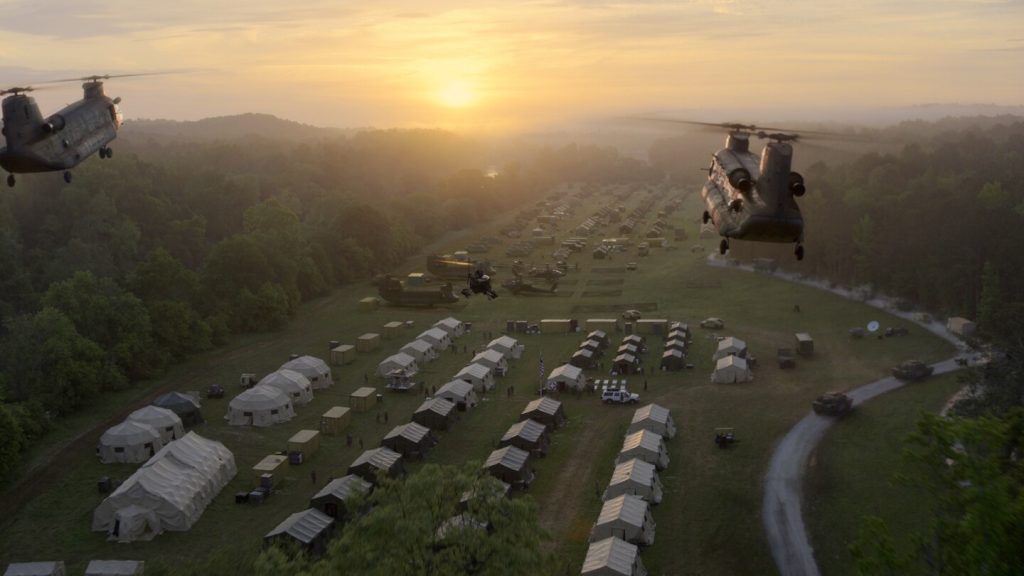Alex Garland’s latest film, “Civil War,” delves into the near-future America engulfed in all-out warfare. Written in 2020 amidst the unraveling of societies around the world due to the COVID-19 pandemic, the film aims to capture the omnipresent realities that were prevalent at the time. The setting of the film sees California and Texas uniting against a fascist president who has seized a third term, disbanding the FBI in the process. The film is a reflection of widely-held American anxieties that continue to grip the nation.
The release of “Civil War” has been highly anticipated, with trailers drumming up intrigue around the film’s premise. While the title might suggest a straightforward depiction of a divided nation, the film is actually more complex, not directly mapped against today’s political polarization. With bombings, firefights, and executions portrayed on American soil, the film presents a visceral look at the consequences of societal collapse. Garland’s fascination with the rapid disintegration of society is evident in his work, serving as a warning shot rather than an act of cynicism.
Hollywood has a history of channeling political discord in its films, with some projects sparking controversy in the past. However, “Civil War” has managed to steer clear of major controversies despite its provocative subject matter. Garland’s approach involves subtle connections to today’s fractured politics and cultural divides, rather than direct allusions to current issues. The film focuses on the role of journalists in capturing critical events, presenting a scenario where unbiased reporting is under attack in a war-torn America.
The budget for “Civil War” was $50 million, marking the largest budgeted film from A24 yet. The indie studio is aiming to draw wider audiences with the release, showcasing the film on IMAX screens. Garland emphasizes that the film is a possibility, not a prediction, despite the eerie parallels between its narrative and real-life events. The film serves as a commentary on the state of journalism and the erosion of unbiased reporting in a society torn apart by conflict. Garland’s work is a reflection of the intense feelings surrounding societal unrest and violence that have become all too familiar in today’s world.
Garland’s long-standing fascination with societal collapse and the fragility of democracy is evident in “Civil War.” While many have wondered how bad things can get, the film offers a sobering answer by depicting a war-torn America facing the consequences of its actions. Despite the challenges of balancing a compelling narrative with sensitive subject matter, Garland’s film manages to spark conversations about the role of journalism and the potential repercussions of societal breakdown. Ultimately, “Civil War” serves as a cautionary tale, urging audiences to take the threats seriously and to avoid complacency in the face of looming dangers.


